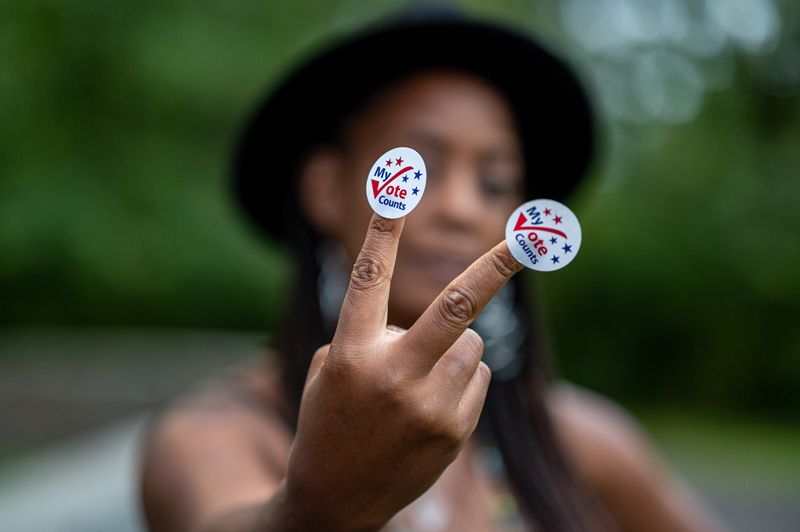Long Shot Win – Turning Point For Voting Rights
The Supreme Court’s recent decision in the case of Allen versus Milligan has brought renewed hope to voting rights advocates across the nation. This landmark ruling addresses the violation of Section 2 of the Voting Rights Act, specifically focusing on the dilution of votes for African-American residents in Alabama. In a recent media briefing, experts discuss the Supreme Court’s decision in detail. Experts highlight that the decision has far-reaching implications for the protection of voting rights and may serve as a precedent for similar cases in other states in a briefing hosted by Ethnic Media Services.
Speakers

- Thomas A. Saenz, President and General Counsel of the Mexican American Legal Defense and Educational Fund
- Evan Milligan, lead plaintiff in the case Allen v Milligan and Executive Director of Alabama Forward
- Jacqueline De Leon, staff attorney at Native American Rights Fund (NARF)
- Stuart Naifeh, Manager of the Redistricting Project at the NAACP Legal Defense & Educational Fund, Inc. (LDF)
Background:
The Alabama case centers around the redistricting practices that resulted in the dilution of African-American votes. The Supreme Court’s decision acknowledges the violation of Section 2 of the Voting Rights Act, which prohibits any voting practice that discriminates against minority groups. This ruling is a significant step towards safeguarding the voting rights of marginalized communities and ensuring fair representation in Congress.
Impact on Voting Rights:
The Supreme Court’s decision in the Alabama case has had a profound impact on voting rights. By addressing the violation of Section 2, the Court has reaffirmed the importance of protecting the voting power of minority communities. This decision sends a strong message that attempts to dilute the votes of marginalized groups will not be tolerated.
Furthermore, the ruling rejects any attempts to weaken the Voting Rights Act, which has been a cornerstone of ensuring equal access to the ballot box for all citizens. The Court’s decision serves as a reminder that the Voting Rights Act remains a vital tool in combating discriminatory voting practices.
Implications for Other States:
The significance of the Supreme Court’s decision in the Alabama case extends beyond the state’s borders. Similar cases involving redistricting practices and the dilution of minority votes are pending in other states, such as Louisiana. The ruling in the Alabama case sets a precedent for these cases, providing a legal framework for challenging discriminatory redistricting practices nationwide.
The decision also serves as a wake-up call for lawmakers and policymakers across the country. It highlights the need for fair and equitable redistricting processes that respect the voting power of all communities, regardless of race or ethnicity. The Court’s ruling underscores the importance of upholding the principles of democracy and ensuring that every citizen’s vote carries equal weight.
Moving Forward:
While the Supreme Court’s decision in the Alabama case is a significant victory for voting rights, the fight for equal access to the ballot box is far from over. It is crucial for advocates and activists to remain vigilant in monitoring and challenging any attempts to undermine voting rights.
Additionally, this decision emphasizes the need for comprehensive voting rights legislation at the federal level. The Voting Rights Act has been a critical tool in protecting the rights of marginalized communities, but it has faced challenges in recent years. The Supreme Court’s decision in the Alabama case serves as a reminder of the importance of strengthening and expanding voting rights protections at the federal level.


